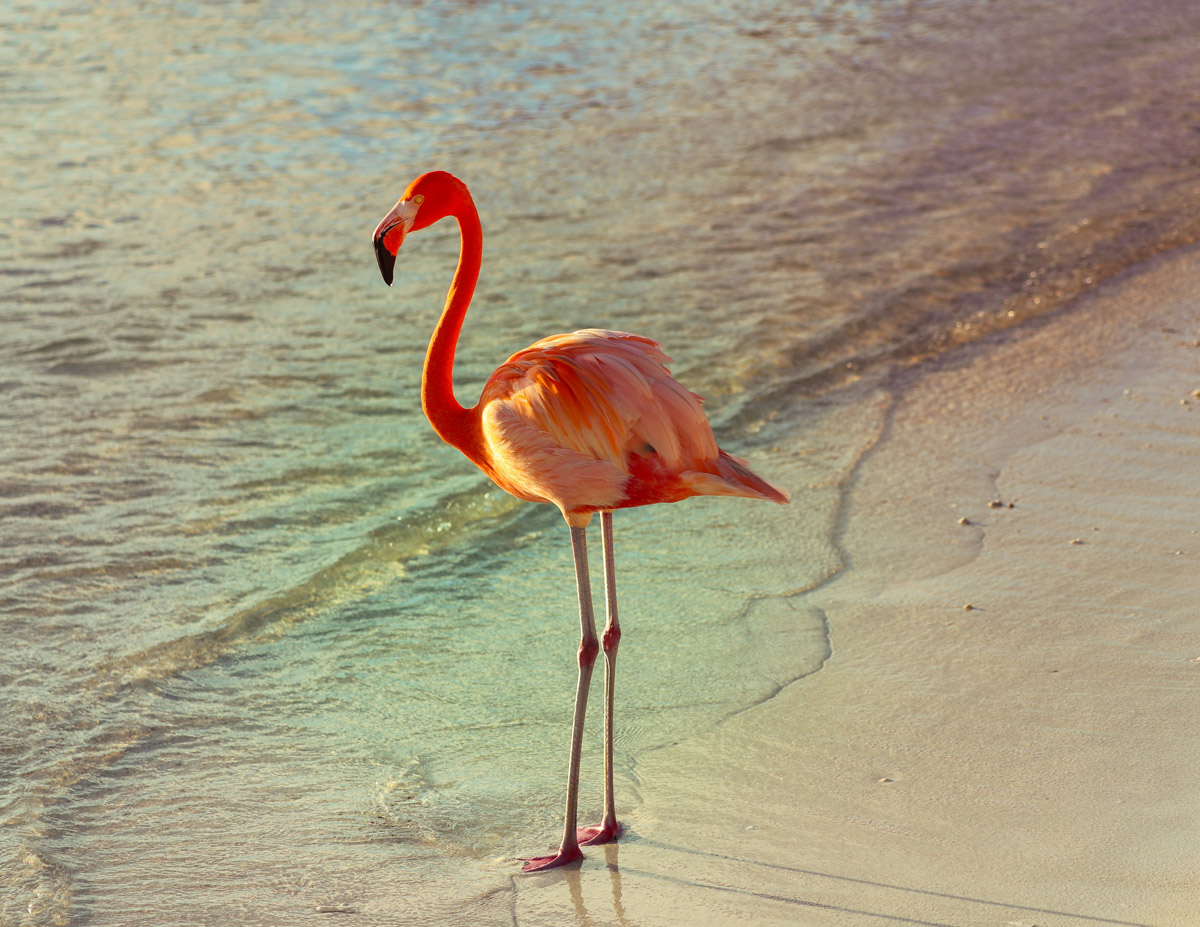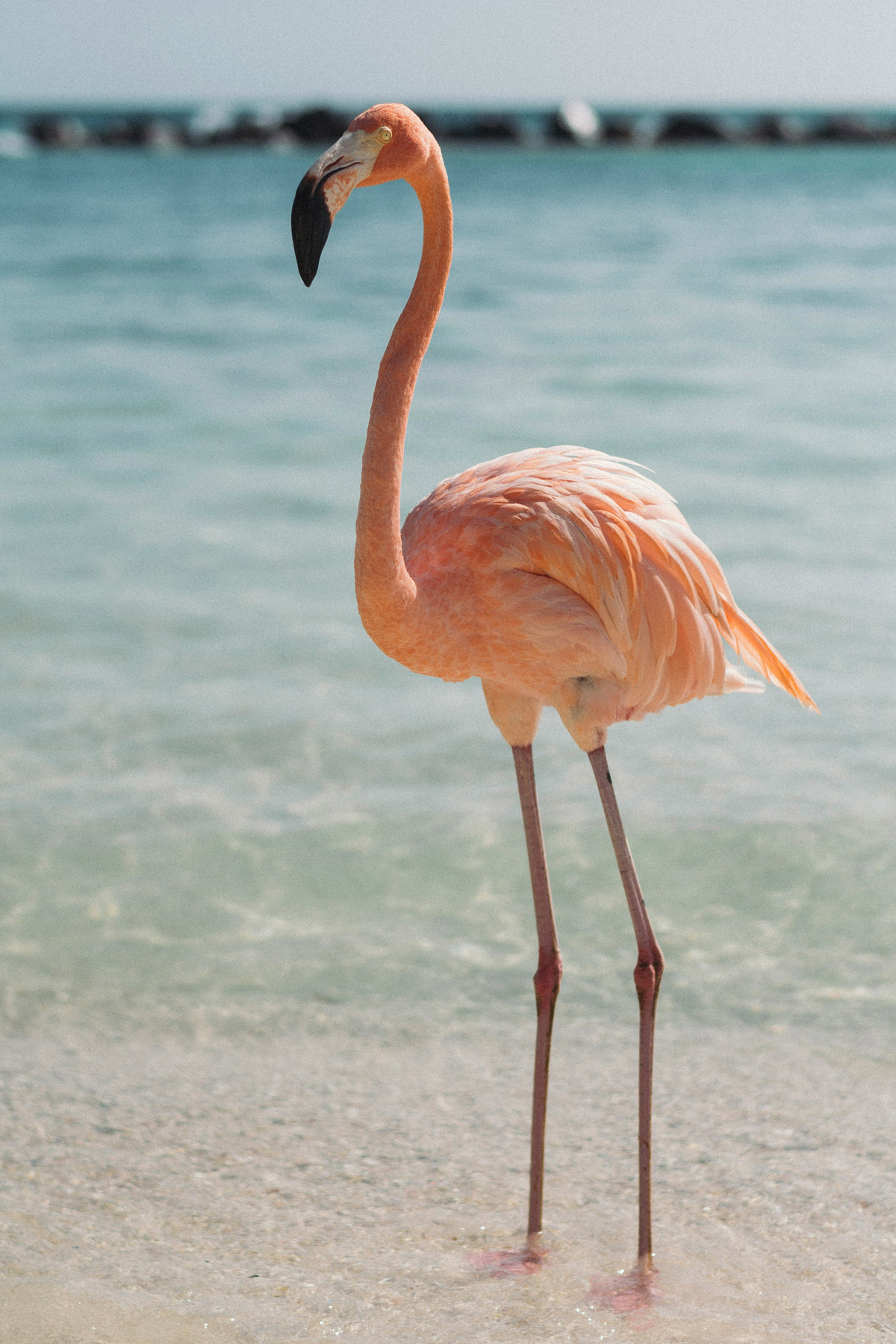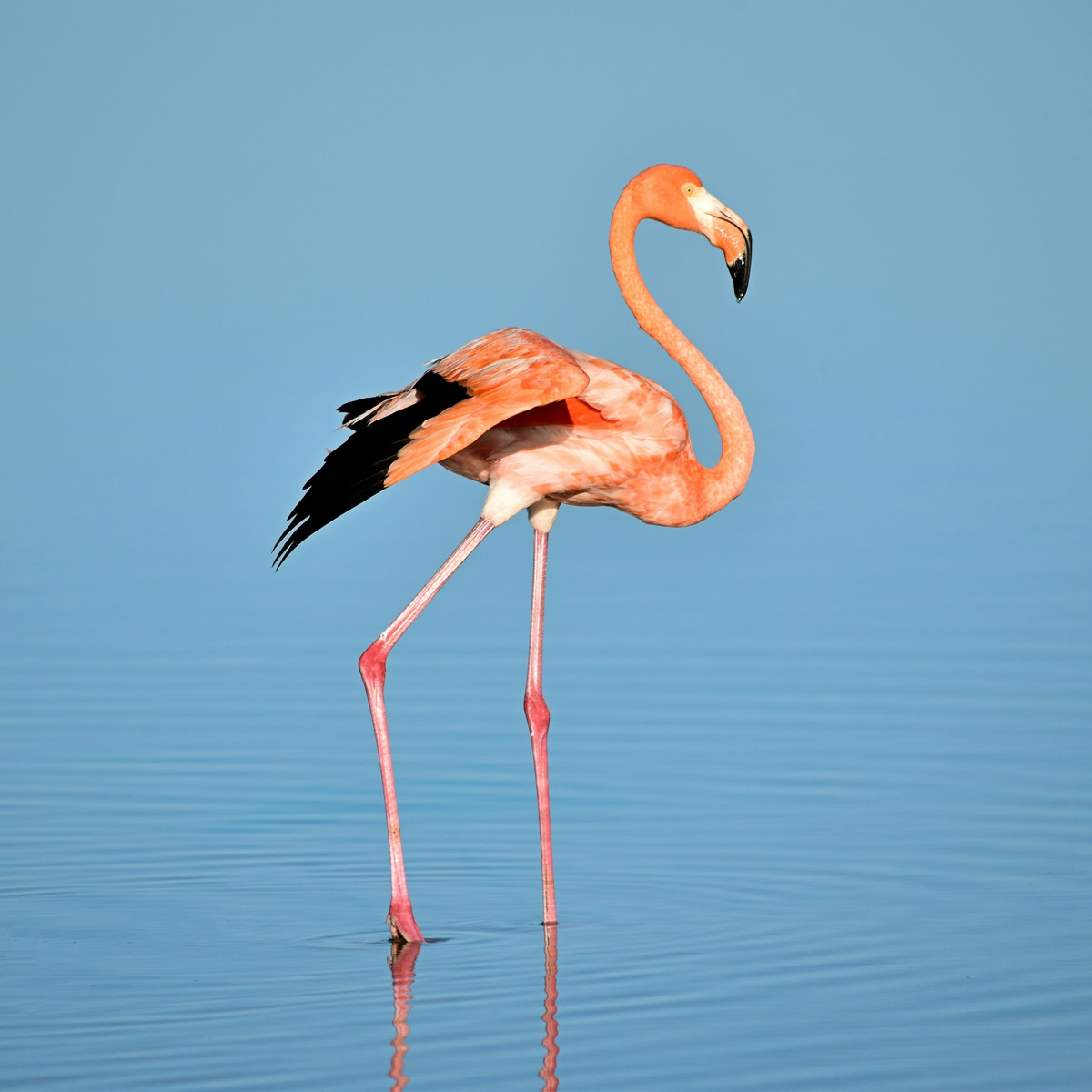
The official term for a flock of flamingos is a “flamboyance,” which I think is simply marvelous. Although I’d be hard pressed to call a lone flamingo anything less than fabulously flamboyant as well. The people of Dennis, Massachusetts, a town in Cape Cod, thought so as well, as locals were stunned by the presence of a flamingo enjoying the sandbar at Chapin Beach last Sunday. How did a flamingo wind up in New England, you ask? Because it was born free, as free as the wind blows! Actually, the most probable explanation is that it got displaced by Hurricane Idalia last August, but maybe that shakeup propelled just the sort of fresh start this bird was craving. Or maybe it was inspired by the intrepid exploits of Thor the Walrus. Heck, maybe someone just needed their alone time from familial wing-flapping. I know I do periodically! ABC News spoke with officers from regional Audubon societies to shed some light on this unique visit:
Unprecedented: If verified as a wild — as opposed to an escaped — bird, the sighting would mark the first time a wild flamingo has been seen in Massachusetts, according to Mark Faherty, the science coordinator for Mass Audubon Cape Cod … who believes this latest sighting to be that of a wild bird that got to Cape Cod on its own. It’s difficult to prove, though Faherty believes the flamingo is the same one spotted on the east end of Long Island, New York, last week, due to the proximity to Cape Cod and the rarity of the bird in the region. “That seems to be the most likely explanation,” he said.
Displacement theory: It’s a bit of a mystery how the bird ended up outside of its native range, though Faherty has one theory. Last year, flocks of flamingos were blown north into parts of the eastern U.S. by Hurricane Idalia almost immediately after it made landfall near Big Bend, Florida, on Aug. 30 — and spotted in states including Virginia, the Carolinas, Kentucky, Texas, Pennsylvania, Ohio, Wisconsin and Florida, where they were once native. The flamboyance phenomenon is a known occurrence with hurricanes that travel up the Gulf of Mexico, Faherty said.
A hurricane refugee? “We know from one bird tracked back in the early 2000s, that when they get displaced like this, they don’t go back home,” Faherty said. “They tend to turn into permanent hurricane refugees and just sort of wander around wherever they end up.” Jerry Lorenz, state director of research for Audubon Florida, told ABC News that he strongly suspects the flamingo got blown from the Yucatan region due to Hurricane Idalia. “I would be willing to bet a great deal of money that that is a bird that came over with Idalia,” he said. If the Cape Cod flamingo is one of those hurricane-blown birds, Faherty said it is “still pretty astounding” that it would have ended up in Massachusetts. “Why did it come all this way to come to Cape Cod now, in June?” he said. “It’s a mystery.”
This is a not so flattering portrait: Lorenz said the “extraordinary” sighting could most likely be due to the bird getting confused and flying in the wrong direction. “Greater flamingos, which is a different species, have been documented to fly 180 degrees the wrong way when they migrate,” he said. “I think that this bird was probably here in Florida and was going, I’m going back to my home in the Yucatan or Cuba or wherever it is and flew in the opposite direction.” Or, it could be that the bird likes it in the north and is exploring, he said. He also said flamingos are “weird birds” and their behavior can be difficult to explain. … Lorenz noted that by restoring Florida’s wetlands, flamingo sightings in northern states could become more commonplace if the birds establish a local population.
In response to the fact that flamingos “have been documented to fly 180 degrees the wrong way when they migrate,” here’s what I have to say: when you’re that pretty, you don’t have to be a genius, too. Call it Mother Nature’s version of checks and balances. What, must we really demand that flamingos know where they’re going in addition to being exquisitely pink?! That’s precisely the kind of pressure that could drive a bird to fly off on its own! The poor kids eat with their heads upside down, give ‘em a break.
So instead of name-calling (you’re weird, Mr. Lorenz!) or deriding their sense of direction, why don’t we celebrate this bird’s sense of adventure! The indomitable, fiercely individual spirit to seek the unknown! This flamingo could be a preeminent scientist conducting a comparative study on Long Island vs Cape Cod krill. Take your pick of explanations for how the flamingo found itself up north. Then savor that little reverie before letting the reality sink in that it was uprooted due to a hurricane, which are getting more intense due to climate change.
Stock photos are from Lex Melony, Raoul Croes and Alejandro Contreras on Unsplash



I absolutely love this story. I was pretty excited about it when I first read the story on a local site. Guess I’ll have to get some plastic flamingos to put on the lawn of my New Hampshire lawn.
Pink plastic flamingoes for the front lawn are always a good choice! Didn’t know they were such doofuses, though; 180 degrees in the wrong direction when migrating???
So beautiful!
Haha! I went to high school on Cape Cod. The boys cross country had a flamingo lawn ornament they had swiped on a practice run. They brought it to every race and had a ‘dance’ around it before the start. That year they won the state championship. Flamingos are good luck on the Cape!
The water in the Atlantic Ocean, and all oceans, is becoming warmer and currents are collapsing and changing.. I think we need to get used to seeing the unexpected.
Please- currents collapsing is one of my biggest ecological nightmares!
Amen to current collapse as a nightmare. It would be the end of life as we know it. Terrifying to read the global effects. Also poor flamingo, all alone. They are very social birds.
Something similar happened in Ottawa in 1997. A Chilean flamingo escaped from a preserve in the US – and flew North, which for its internal compass was towards warmer weather. Unfortunately, November in Ottawa is pretty frigid. It took a few days, but the flamingo, named Elisha, was eventually captured in a frozen creek, There were crowds of people watching it and It made headlines in Canada for a few weeks.
Was she ok?!? I’m guessing so
They always call you weird when you follow your own path! Follow your dreams, you brave, flamboyant soul!
It won’t be pretty in October when temperatures drop to 50’s/40’s and that poor tropical warm blooded beauty starts to shiver. Who is going to catch it and fly it back to its natural habitat in south Florida?
Someone will! And restore our faith in humanity for awhile.
It’s already flown back to NY. Hopefully it continues to head south. To be fair, even Florida can get pretty cold. They’re resilient birds. They survive in northern zoos all the time.
It better fly south an average of 30 miles a week so by the end of the summer it will be in Florida where it belongs. Let’s hope his biological compass will not fail him/her. I trust bird will be able to eat some tasty mollusks and clams along the way to make its coat a nice shade of pink.
Even with the temperature drop, they’ll be fine. There is a shallow lake that freezes quickly once the sun goes down — the flamingoes are too dumb to leave the water before that, so they get frozen in place overnight and have to wait until the sun comes up to move again.
OMG!!
What a beauty
I was taking care of my elderly mother in VT last week. With windows open, I heard a strange bird call, one i had never heard before- kinda like the bamboo notification sound on iOS. What I saw surprised the bejesus outta me- it was a tri-colored blackbird! This bird calls the pacific coast of California its home. I assumed the brutal storms last week caused it to lose its way. Quite the accidental sighting!!
Global warming. The birds are changing direction to where it’s warm, but not too warm. That bird is very pink. It’s been eating well.
But can flamingos withstand a New England winter? I know I only barely survived the couple that I experienced, and I live INDOORS.
That was my question too. I’m currently in Maine and freezing
Right? Those skinny legs do NOT look like they would hold up well in freezing temps, and talk about top-heavy. 🤓
As a native, I *promise* you miss thing flew in for Pride out in P-town.